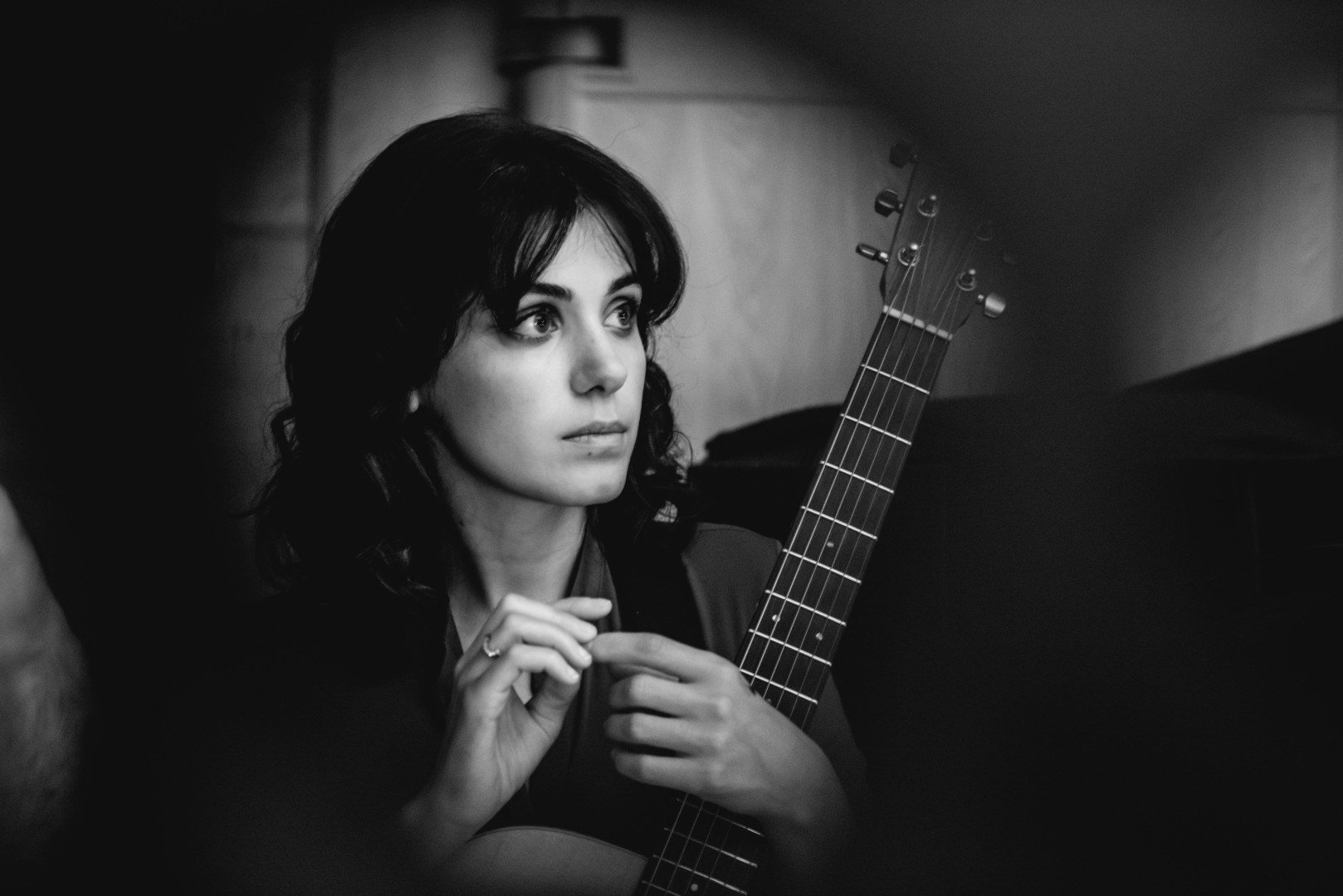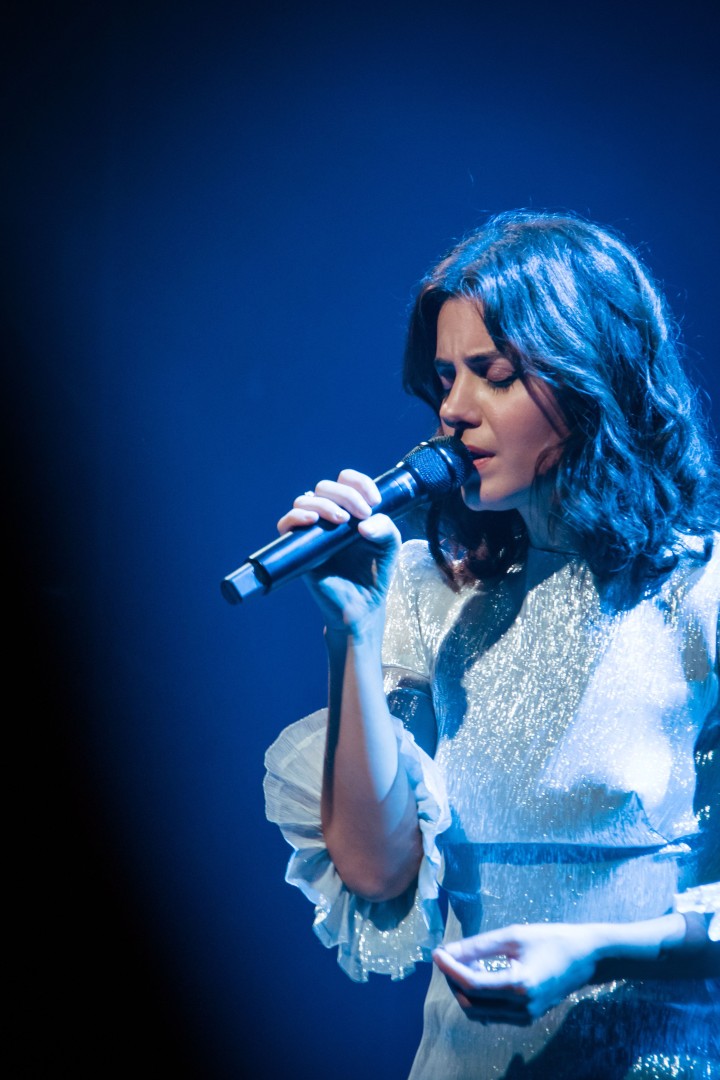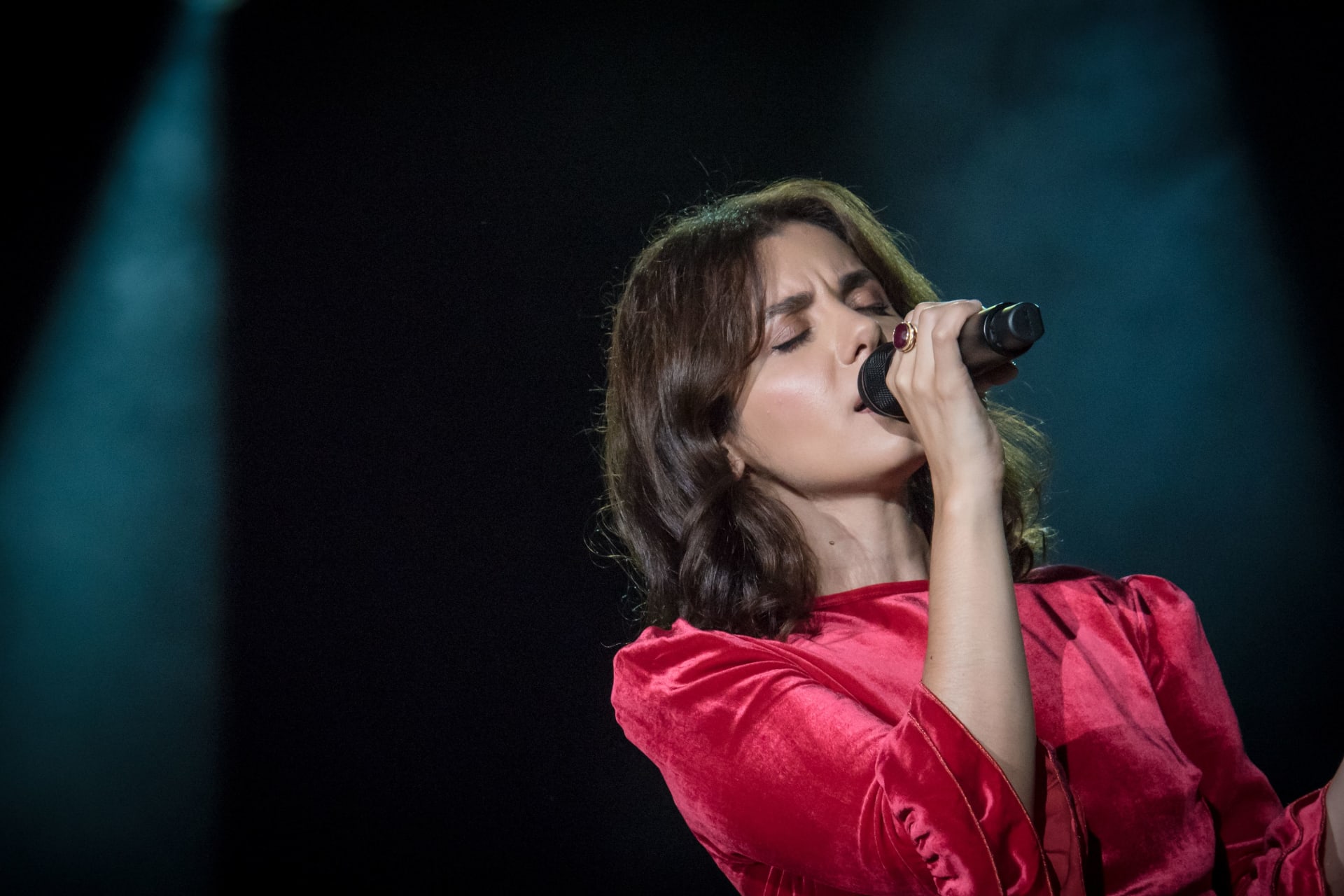It’s just over 20 years since singer-songwriter Katie Melua’s debut album, Call Off the Search was released in the UK, catapulting her to the sort of fame which would overwhelm most 19-year-olds.
Her musical career has seen numerous achievements: multiple platinum-selling albums; awards and iconic performance; even a Guinness World Record for the deepest underwater concert. She has collaborated with legends of the music industry, including Mike Batt and William Orbit and on her seventh album, In Winter, she chose to work with the Gori Women’s Choir in her homeland, Georgia. This month, she will be in Oxford, helping to launch the Oxford Literary Festival’s new Programme in Georgian Literature and Culture. I was a little daunted when offered the chance to speak with Katie but found her to be unreservedly charming; serious, considered and thoroughly relatable. Just your (not at all) average down-to-earth global superstar…
Katie, what is your involvement in the Georgian programme at the Oxford Literary Festival?
I come from Georgia, my whole family is Georgian. I was born there and lived there until I was nine years old. As a family, to us, keeping our Georgian roots up was essential; it was a huge part of our life at home in the UK. When you emigrate as a family, it’s like a tear in the fabric of your identity. To my parents it meant a great deal that we kept up with the Georgian language. So that’s the family side. I’ve been working as a musician in the British record industry for the last 20 years, and I was very fortunate to collaborate with a choir in Georgia on my seventh album. It was just fascinating to actually go and make a record in Georgia. I got to experience what life is like there, not just as a place to go on holiday – which is a spectacular – but also as a working, creative destination.
I have to commend Maya Jaggi [the director of the Georgian Programme for the Oxford Literary Festival]. I just think it’s so brilliant that she's put together this programme. My understanding is that for Georgia to have a programme of its own is quite remarkable and its very much down to her. I participated with her at a festival she put on a couple of years ago during the pandemic, called Georgia's Fantastic Tavern, and I loved being part of that. I spoke about my stories of making the record in Georgia and the research that I did which led me to discover about my grandad and his time in a Siberian labour camp. Also, we made the project (the album) in Gori which is Stalin's birthplace. So there are a lot of reasons why I'm involved.

I understand you will be performing Plane Song at the Festival, which is about your childhood in Georgia. I can’t imagine how emotional it will feel to sing that at an event entitled, In Stalin’s Shadow.
You know what, I hadn't yet thought about that. I mean songs can bring up all sorts of emotions because they are very emotional works of art; they go straight to your soul. Often when I’ve performed that work it is as part of the record, and the idea of a winter album; but you’re right. I guess the perspective that I’m bringing is an innocence, a fairytale quality that had to be embodied in order to survive. Grandad would tell us stories of his escape from this Siberian labour camp, and it was so adventurous; it was like an Indiana Jones tale. I think like as a kid I got protected from the harsh realities of really what went on.
I’m also so interested to hear from the writers who will be speaking. They are culturally quite iconic in Georgia, and they are of a certain generation so I think it will be a fascinating and soulful event.
Why did your family leave Georgia?
So, we moved in 1994 and the Soviet Union broke up in 1991. Georgia had a civil war in 1991, and my dad was a really talented doctor. At that point earning a living in Georgia as a doctor was less [than he would earn as] a taxi driver, so he was just looking for an opportunity to get his family out and to start a new life somewhere. It was for socio-economic reasons.
I know hospitality is a key part of Georgian culture. Is that a trait you still embrace?
The number one saying in Georgia is ‘a guest is a gift from god’. If we have any guests coming to our house I go into this automatic Georgian cultural mode. They might be coming round at 4 pm on a Wednesday but I’m like, ‘we have to have not only a cup of tea and a biscuit, but an entire feast to offer’. It’s so programmed in me because I have witnessed it my entire life. My grandad was a chef, the house was always filled with guests, food and music.
I understand the Programme is being supported by the Georgian boutique hotel chain, Rooms. Have you stayed with them?
I think the fact that Maya has got Rooms to sponsor the event is so good. They’re like one of the hardest hotels to get into and they have become such a huge brand in Georgia. There’s one in Kazbegi, which is in the mountain region. I stayed there with my partner a couple of summers ago. It was the busiest I’ve ever seen a hotel – and I’ve toured a lot.
I actually ended up writing a song about their sister hotel called Stamba hotel. There was no affiliation with them whatsoever, it was where I wanted to place the scenes of the song. They just got the interiors down really well, there’s a real mood, there’s a real atmosphere, they've captured a certain Georgian artists spirit.
How do you define that?
I mean it’s kind of in the texture of Tbilisi particularly. If you imagine the architecture, you might have little kind of wooden places that remind you somewhere in Asia and then you might have buildings that remind you of Paris or Italy, you know? You have courtyards with kids playing, you'll have grapevines rambling all around the balconies, you'll have the smell of fresh baking bread from every corner because you have the lavash bread bakeries pretty much on every street. Where I live in Tbilisi is close to the classical school so you will hear opera singers warming up. Families will have a guitar or a piano, and people will play. In the middle of the night a few years ago, the streets were deserted, and I remember passing two lads who were in their late teens. One of them put his arm around the other one and they started doing traditional Georgian dancing, which is very elegant, and it was just so beautiful.
So it is these things that are really atmospheric and then you've also got the Soviet buildings, graffiti everywhere – teens writing crazy stuff on the walls. Some of the buildings look like they’re going to fall apart; you just don't know how they are standing upright.
I’m wondering if the barriers between what we might think of as high culture and popular culture are less rigid in Georgia. In the UK high culture (opera, ballet, classical music, traditional dance) are often seen as elitist.
You reckon high culture is harder to attain here? We talk about this a lot in the music industry, about the fact that – for example – coolness is really important in this culture. In the music industry it comes way above, like, high culture and educating yourself. In Georgia getting a good education is so valued; universally, amongst all of society.

So someone wouldn’t be a nerd if they ...
– No they wouldn't be called a nerd at all! You would be disliked by others is if you betray your friends, because friendship is valued really seriously. Being a good host is valued incredibly and getting a good education and becoming successful is also valued.
The other reason why I’m super excited about this event is Georgia itself. I’m obsessed with my home country, and I so attached to it. I got really excited when Maya – knowing who she is and knowing what her kind of perspective is – was also so excited about Georgian culture. I feel like there’s a limit to where I can ‘sell’ Georgia because I’m too close to it. I think anytime you open yourself up to another culture or you have more than one that you deeply know, it’s just the most astonishing thing. It’s really fascinating to know more than one language and to see the world through two languages, or three. I think this event will go some way towards looking at those things that are cultural translations; where there are gaps, and where there aren't.
Speaking of translation, I read that you don’t write your music in Georgian; you write in English. Are Georgian Katie and English Katie different people?
You know, I do feel like my Georgian adult Katie needs to catch up and grow up a bit. Last year was the first time I finished my first adult book in Georgian. I really want my son to speak Georgian so that was the inspiration behind my reading. But to your question, I don’t know… I think there are certain things you see and hear with your family in Georgia and your family in England and there’s sort of different perspectives on things. Sorry that’s being quite vague. Does that answer the question.
You mean they are different sensibilities?
Exactly.
Finally, what is it that you want visitors to the festival to take away from the event?
I think they will find the stories fascinating; the stories they will hear from the writers, the stories I’ve got about being from Georgia. It’s a bit like the geography of the place itself, it’s very mountainous, life is quite dramatic there. I think they'll be taken for a really interesting ride.
Katie Melua will be at The Sheldonian on Sunday 17 March alongside the highly acclaimed novelists Aka Morchiladze and Dato Turashvili at an event chaired by award-winning cultural writer, Maya Jaggi. Out of Stalin’s Shadow: Writing the New Georgia.
For tickets and further information visit oxfordliteraryfestival.org
Image credit Tetesh Ka









